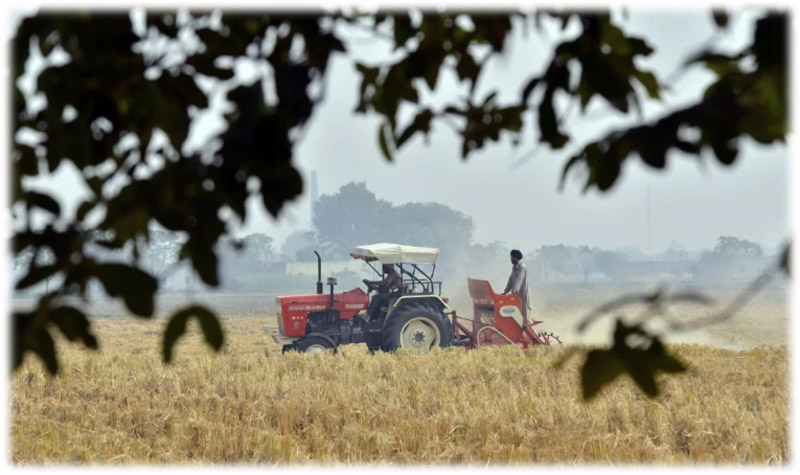 Jalandhar
Jalandhar
Leading the way: Jalandhar village sets an inspiring example with zero farm fires in 5 years
Jalandhar, renowned for its agricultural heritage, is currently grappling with the escalating issue of stubble burning.
However, amidst this growing concern, a small and unassuming village has emerged as a beacon of hope, striving to make a positive change.
For over five years now, this village, situated in Jalandhar, has managed to steer clear of the destructive practice of stubble burning.
Officials from the Agriculture Department have confirmed that not a single case of stubble burning has been reported from this village in several years.
Led by their vigilant Sarpanch, Avinash Kumar, the village, with a population of approximately 800, has adopted a zero-tolerance policy towards stubble burning. Avinash Kumar emphasizes, “I strictly discourage any attempts to burn residue, promptly notifying the relevant departments and the police. Over time, the farmers in our village have come to realize that stubble burning is a crime.” He further reveals his efforts to raise awareness among farmers in neighboring villages like Trara, Malko, Kadowali, and Samipur.
Rather than resorting to stubble burning, the farmers in this village have adopted alternative methods. They employ advanced agricultural machinery, such as super-seeders, balers, and rotavators, to manage crop residue effectively. By plowing the stubble back into the soil, they create a fertile ground that facilitates the cultivation of other crops. Additionally, wheat stubble is ingeniously utilized as fodder for livestock.
Iqbal Singh, the owner of 40 acres of land, admits that he used to burn paddy stubble until seven years ago. He states, “We have collectively decided to abandon this harmful practice as it contributes to pollution. It is simply not the right thing to do.” Another farmer, Maninder Singh, highlights that plowing stubble back into the soil significantly reduces the need for fertilizers.
Dr. Jaswinder Singh, an Agriculture Officer, commends the village for its exemplary commitment to curbing stubble burning. He asserts, “The villagers here have refrained from burning paddy or wheat stubble for years, serving as an admirable example for others to follow.”
In a region plagued by the harmful effects of stubble burning, this village in Jalandhar stands as a shining testament to the possibility of sustainable farming practices. By embracing innovative techniques and cultivating a deep sense of responsibility towards the environment, these farmers have not only transformed their own livelihoods but have also set a powerful precedent for the entire state to emulate.
(Image and Text credit: Khalsavox.com)
Support Our Journalism
We cannot do without you.. your contribution supports unbiased journalism
IBNS is not driven by any ism- not wokeism, not racism, not skewed secularism, not hyper right-wing or left liberal ideals, nor by any hardline religious beliefs or hyper nationalism. We want to serve you good old objective news, as they are. We do not judge or preach. We let people decide for themselves. We only try to present factual and well-sourced news.







